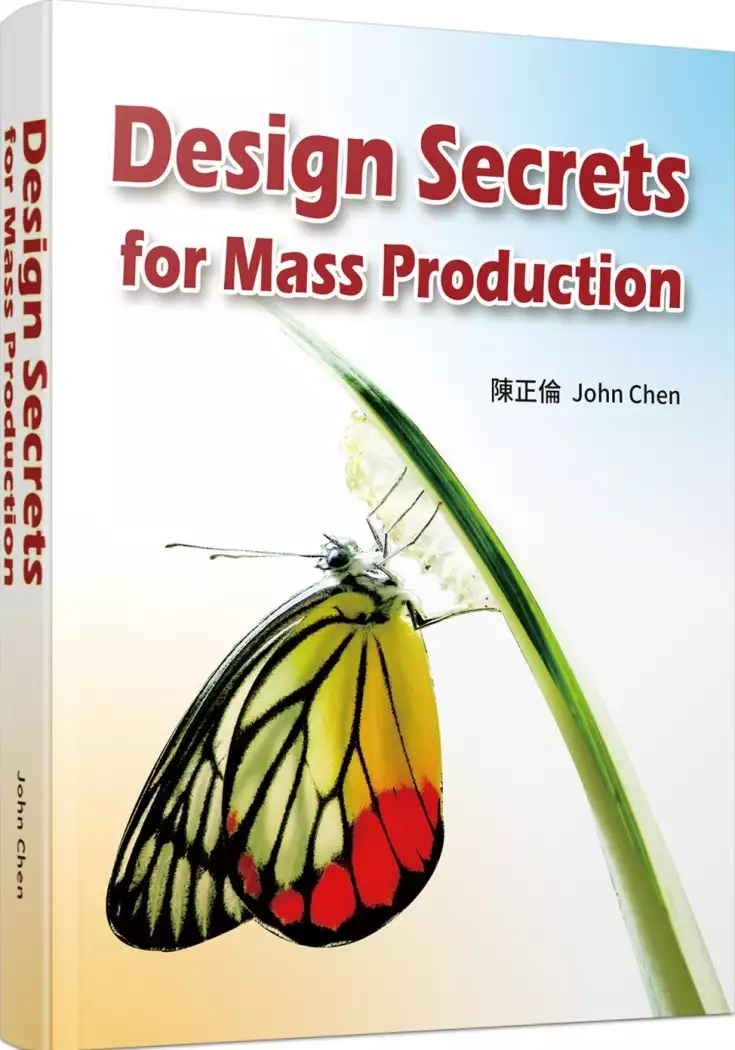SMART goal reference的問題,透過圖書和論文來找解法和答案更準確安心。 我們找到下列包括價格和評價等資訊懶人包
SMART goal reference的問題,我們搜遍了碩博士論文和台灣出版的書籍,推薦Singh, Randeep,Mondal, Piyal,Kumar Purkait, Mihir寫的 PH Responsive Membranes: Biomedical Applications 和陳正倫JohnChen的 Design Secrets for Mass Production都 可以從中找到所需的評價。
這兩本書分別來自 和三民所出版 。
國立彰化師範大學 教育研究所 王智弘、翁福元所指導 林青松的 學業自我概念之大魚小池效應與學業成就關係探究:以TIMSS 2019為例的跨國多層次分析 (2021),提出SMART goal reference關鍵因素是什麼,來自於學業自我概念、大魚小池效應、國際數學與科學教育成就趨勢調查2019、學業成就。
而第二篇論文元智大學 工業工程與管理學系 蘇傳軍所指導 黃士峰的 以資料倉儲驅動即時預測性維護平台:以連續型生產為例 (2021),提出因為有 工業4.0、物聯網、大數據分析、機器學習、資料倉儲、預測性維護、連續型生產的重點而找出了 SMART goal reference的解答。
PH Responsive Membranes: Biomedical Applications

為了解決SMART goal reference 的問題,作者Singh, Randeep,Mondal, Piyal,Kumar Purkait, Mihir 這樣論述:
Dr. Randeep Singh Dr. Randeep Singh received his undergraduate degree from Kurukshetra University in Biotechnology (2011), Master’s degree in Chemical Engineering (2013) from National Institute of Technology Trichy, Tiruchirappalli, Tamil Nadu, and Ph.D. degree in Chemical Engineering (2019) from In
dian Institute of Technology Guwahati, Guwahati. He was a visiting research fellow at National Taipei University of Technology, Taipei, Taiwan under TEEP (Taiwan Experience Education Program) fellowship for his post Ph.D. research. His area of research is in the field of membrane science and technol
ogy, smart materials, nanocomposites, adsorption, biofuels, sonochemistry, desalination, and wastewater treatment. His research work is dedicated to the synthesis of various novel materials and membranes with different biological and environmental applications. Presently, he has published 9 peer-rev
iewed journal articles, 3 books, and 5 book chapters in the field of materials and membrane science with more than 250 Google Scholar Citations. Further, he presented his research in various national and international conferences. He has received several Awards in his field including young scientist
award in International Science Congress (ISC-2015) held in Nepal. He is an associate member of Indian Institute of Chemical Engineers.Dr. Piyal Mondal Dr. Piyal Mondal received his BTech in Chemical Engineering from the National Institute of Technology Durgapur, West Bengal (INDIA) during 2012. He
completed his Masters Degree (2015) and Ph.D. degree (2021) in Chemical Engineering from the Indian Institute of Technology Guwahati (INDIA). His research work is dedicated to preparing various surface engineered polymers for specific environmental applications. Synthesis of polymeric membranes, gre
en synthesized nano-materials, and hybrid techniques to combat wastewater treatment is also his research focus. He has fabricated different prototypes for environmental separation applications. Currently, he has authored 4 reference books namely: Stimuli-responsive polymeric membrane (Elsevier, ISBN
: 9780128139615), Treatment of Industrial Effluents (CRC Press, ISBN: 9780429401763), Thermal Induced Membrane Separation Processes (Elsevier, ISBN: 9780128188019), Hazards and Safety in Process Industries: Case Studies (ISBN 9780367516512) and a few more on progress. Moreover, his publication consi
sts of 16 peer-reviewed articles in reputed international journals, with several more under review. He has presented more than 15 papers and received several awards in poster and paper presentations in his field at international and national conferences.Dr. Mihir Kumar Purkait Dr. Mihir Kumar Purkai
t is a Professor in the Department of Chemical Engineering and Dean of the Alumni and External Relation office at Indian Institute of Technology Guwahati (IITG). Prior to joining as faculty in IITG (2004), he has received his PhD and M. Tech in Chemical Engineering from Indian Institute of Technolog
y, Kharagpur (IITKGP) after completing his B. Tech and B. Sc (Hons) in Chemistry from University of Calcutta. He has received several awards like; Dr. A.V. Rama Rao Foundation’s Best PhD Thesis and Research Award in Chemical Engineering from IIChE (2007), BOYSCAST Fellow award (2009-10) from the DST
, Young Engineers Award in the field of Chemical Engineering from the Institute of Engineers (India, 2009), Young Scientist Medal award from the Indian National Science Academy (INSA, 2009). Prof. Purkait is a Fellow of Royal Society of Chemistry (FRSC) UK, and Fellow of Institute of Engineers (FIE)
India. He is the director of 2 incubated company (viz. RD Grow Green India Pvt. Ltd. and Vixudha Bio Products Ltd.). He is also technical advisor of Gammon India Ltd and Indian Oil Corporation, Bethkuchi for their treatment plant. His current research activities are focused in four distinct areas v
iz. i) advanced separation technologies, ii) waste to energy, iii) smart materials for various applications and iv) process intensification. In each of the area, his goal is to synthesis stimuli responsive materials and to develop a more fundamental understanding of the factors governing the perform
ance of the chemical and biochemical processes. He has more than 20 years of experience in academics and research and published more than 200 papers in different reputed journals (Citation: >9500, h-index = 55, 10 index = 116). He has 8 patents and completed 24 sponsored and consultancy projects fro
m various funding agencies. Prof. Purkait has guided 18 numbers of PhD students. He has authored 6 books.
學業自我概念之大魚小池效應與學業成就關係探究:以TIMSS 2019為例的跨國多層次分析
為了解決SMART goal reference 的問題,作者林青松 這樣論述:
本研究使用2019國際數學和科學研究趨勢(TIMSS 2019)的數據,以檢驗納入統計的44個國家或地區中,八年級學生的學業自我概念之大魚小池效應與學業成就關係。大魚小池效應(Big Fish-Little-Pond-Effect),係指當所處群體的平均能力較高,學生會因為與同儕的社會比較而產生較低的學業自我概念;反之然當所處群體的平均能力較低,學生則產生較高的學業自我概念。主要研究目的歸納如下:(一)探討學生數學自我概念對於數學學業成就的影響。(二)探討個體與班級層面之數學學業成就對於學生的數學學業自我概念的影響。(三)探討個體層面之數學學業成就、知覺相對位階(perceived rela
tive standing對學生的學業自我概念中之BFLPE的影響。據此,本研究提出三個研究假設模型,第一個統計模型是數學自我概念的驗證性因素分析(Confirmatory Factor Analysis, CFA)模型。第二個統計模型是Lüdtke et al.(2008)提出的多層次潛在共變項模型(multilevel latent covariate model)的擴展。在第三個統計模型中,與先前的研究一致(Wang& Bergin,2017,Huguet et al.,2009,Wang, 2015),加入知覺相對位階以作為組內層次數學自我概念的附加預測因子。研究結果顯示:(一)班級間
平均數學學業自我概念有顯著不同。(二)學生個人與班級之數學學業成就對學生的數學學業自我概念有顯著預測力。(三)學生個人之數學學業成就、知覺相對位階對學生的數學學業自我概念有顯著的預測力。本研究僅基於研究的相關發現與研究過程所遇挑戰提出後續研究的建議,依內容分為對教育實務方面與對後續欲進行類似取向的研究提出相關議題之建議,期能將研究結果提供教育行政主管機關、學校行政人員、教師及未來研究者作為參考。
Design Secrets for Mass Production

為了解決SMART goal reference 的問題,作者陳正倫JohnChen 這樣論述:
By reading this book thoroughly: 1. You can rectify incorrect concepts as early as possible; after all, if you do it right in the first place, you will always get it right. 2. You will significantly reduce the number of times of modification, the time for repeated design modifications, as
well as production and tooling modification costs. 3. You, as an inexperienced designer, can enhance your own skills without solely relying on experienced ones guidance. 4. You, as an experienced designer, will be enlightened at the right time to integrate your own design experience without
wasting time on repetitive trials and errors. 5. You, as a design supervisor, can adopt this book as a reference for the development of internal education and training as well as design guidelines to increase design efficiency in your department. 6. You, as a project manager, can anticipate
design defects and remind designers to respond in time to improve the overall product development efficiency.
以資料倉儲驅動即時預測性維護平台:以連續型生產為例
為了解決SMART goal reference 的問題,作者黃士峰 這樣論述:
工業4.0的出現,促使現代機械設備相互溝通和協作生產的複雜度大為提升,任何一個生產環節的故障情事發生,都可能產生重大的後果。為落地工業4.0策略框架以實現工業高度自動化,勢必需要一全方位平台來整合既有之前沿技術,如:物聯網、機聯網、雲端運算、大數據分析、人工智慧等,能分析出機械設備於運作過程中的潛在缺陷,並於實際轉為故障前主動發出警報訊息,使產線人員得以迅速作出反應。本研究提出一以資料倉儲作為驅動核心的即時預測性維護平台,為具備連續型生產之企業提供即時預警分析服務。該平台整合了可用於處理感測器時間序列數據的資料倉儲系統,以及便於生成機器學習模型的大數據分析平台,並整合善於處理即時串流數據和故
障檢測的Spark分析引擎。